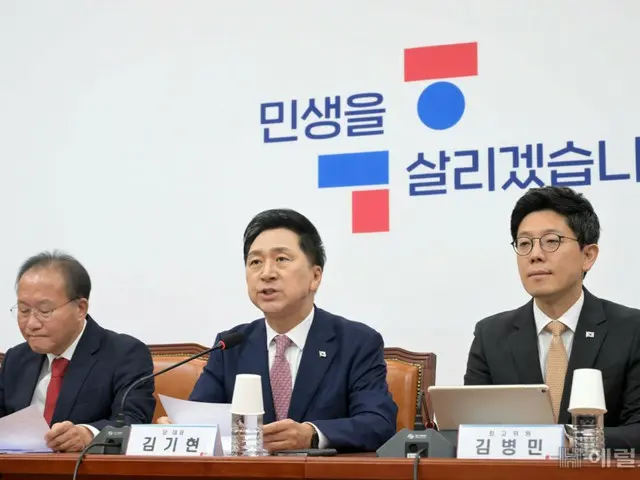Ahead of the by-election for Seoul's Gangseo district mayor, the concerns of the ruling party ``People's Power'' have become reality. The party's candidate, Kim Tae-woo, former mayor of Gangseo Ward, is running for 39 points in this election.
They only got 37% and lost by 17.15%. Within the party, there is talk of a crisis in the Tokyo metropolitan area, where a large number of seats are concentrated.
According to the Herald Economic Newspaper on the 12th, candidate Kim received 39.37% of the votes in politics.
The prevailing interpretation is that this is linked to the president's supporters, who are effectively trapped in the ``mid-to-late 30%'' box. The composition of elections is based on the ``huge opposition referee theory'' and ``political politics'' that only appear during general elections.
In that it was a showdown of ``rights and judgments,'' this result raises concerns that if we fight with the previous strategy of ``next year's general election will be fought based on the president's approval rating,'' we will be ``an official who is sure to lose.'' give birth
Ru. Enbrain Public, KEI Stat Research, Korea Research, and Korea Research, specialized public opinion polling organizations, conducted a survey of 1,011 18-year-old men and women nationwide from September 9th to 11th, and on the 12th.
According to the National Index Survey (NBS) released in the second week of October, President Yoon Seo-gyul's approval rating for national affairs was 35%, an increase of 1 point from the previous survey (response rate 17.3%,
sampling error (±3.1 percentage points at 95% confidence level). According to an NBS survey, President Yoon's national approval rating has remained in the mid-30s since hitting 38% in the first week of July.
Similar numbers have been found in other opinion polls. According to Realmeter's survey, the president's national approval rating was 42% in the 5th week of June, and was 37-38% in the 1st week of October, the most recent survey.
% (response rate 2.6%, sample error of 95% confidence level ±2.5 percentage points). In relation to this, a party official said before the election, ``Candidate Kim won an order in the low 40% range.''
If we win, there is still hope for next year's metropolitan area elections.'' However, he predicted, ``If we lose in the mid-to-high 30% range, next year's metropolitan elections will be wiped out.'' Supporting the president's national policy in the wasteland of Gangseo District
If the candidate wins more votes than the candidate's competitiveness and election strategy, he or she can overcome the crisis theory in the metropolitan area, but if not, the candidate is expected to lose the metropolitan area election.
The 56.52% won by Jin Gyo-hoon of the opposition Democratic Party of Japan is said to be linked to the president's disapproval rate in the Seoul region.
There is also a view that According to an NBS survey released on the same day, the disapproval rate for the president in the Seoul region is 57% (19% wrong + 38% very wrong). 1st week of October
According to the Realmeter survey, the president's disapproval rate in the Seoul region was 56.3% (7.4% + 48.8%). The vote share of candidates from both parties will be determined by the ``government stability theory'' and ``government stability theory'' in next year's general election.
The distribution of respondents is similar to that of ``Theory of Government Control''. In a recent general election awareness survey conducted by Realmeter at the request of the Energy Economics Newspaper, it was concluded that ``the ruling party has the power of the people to ensure the stable management of national affairs.''
39.7% of respondents said that they should support the candidate. On the other hand, half of the respondents said that they should support opposition candidates such as the Democratic Party in order to check the government.
This was 53.4%. 6.9% of respondents said they were "not sure."
2023/10/13 06:02 KST
Copyrights(C) Herald wowkorea.jp 104

